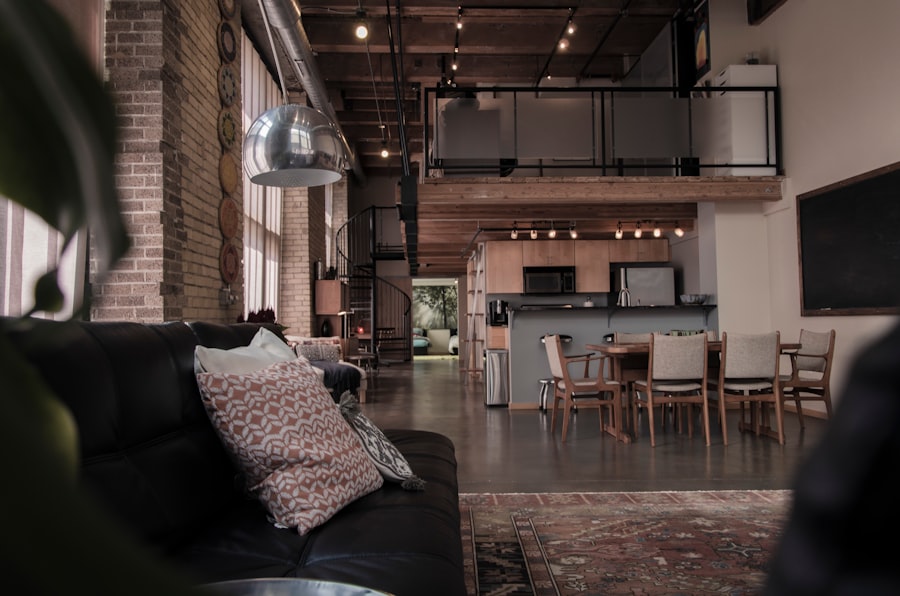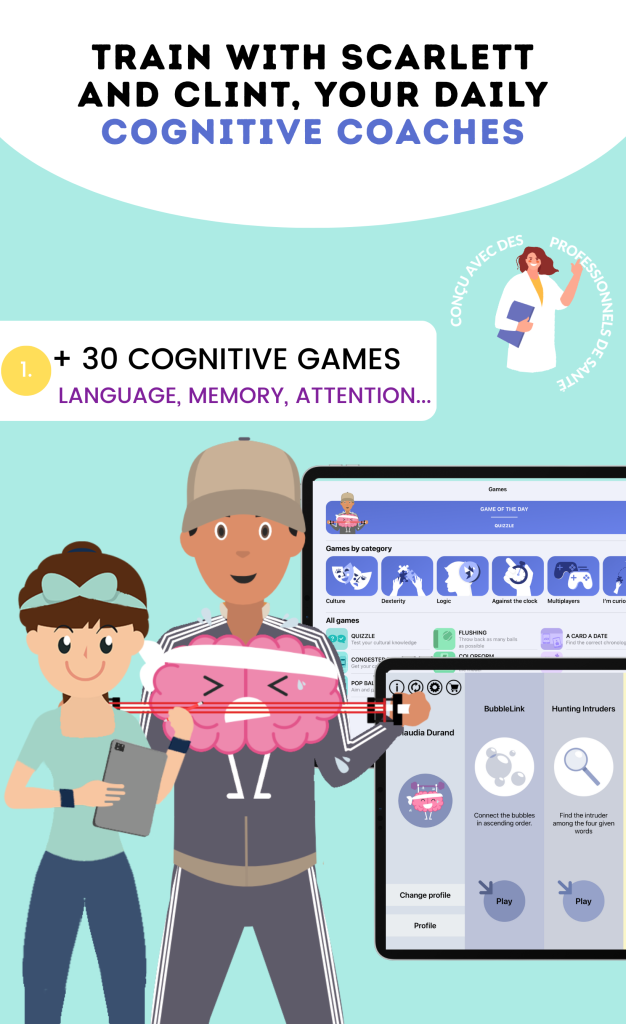Home care for seniors is an increasingly important topic in our aging society. With the aging population, more and more elderly people need assistance to perform daily tasks and remain independent at home. However, there are many challenges to providing quality care for seniors, including the lack of qualified personnel and the high cost of services. This is where innovation comes into play. Thanks to technological advancements, many adapted tools are now available to facilitate the lives of seniors at home.
The Challenges of Home Care for Seniors
The aging population is a major challenge for home care. Indeed, the number of elderly people is rapidly increasing, which means that the demand for home care is constantly rising. However, there is a lack of qualified personnel to meet this growing demand. Trained and competent individuals in the field of elderly care are rare, making it difficult to provide quality assistance.
Moreover, the cost of home care services is often high, which can make access to these services difficult for some elderly people. Families often face significant expenses to ensure the well-being of their elderly relatives, which can be a substantial financial burden.
The Benefits of Using Adapted Tools for Seniors
The use of tools specifically designed for seniors offers a multitude of benefits, ranging from improving their autonomy to optimizing their overall well-being. These adapted solutions play a key role in their daily lives, making tasks easier, enhancing their safety, and enriching their quality of life.
1. Increasing Seniors’ Autonomy
Autonomy is a fundamental element for preserving the dignity and sense of control of seniors over their lives. Adapted technological tools allow them to remain independent, even in the face of physical or cognitive limitations.
- Concrete examples:
- Mobility aids: Lightweight walkers with integrated baskets facilitate daily movements, such as going shopping or taking a walk.
- Reminder applications: Seniors can set reminders to take their medications, call their loved ones, or perform important tasks, helping them better manage their routine.
- Intuitive home automation: With voice commands or simplified remote controls, they can effortlessly control lighting, temperature, or household appliances.
2. Enhancing Home Safety
Household accidents, such as falls or fires, pose a major danger to seniors. Adapted tools help prevent these risks by creating a safe environment.
- Safety tools and devices:
- Smart detectors: Connected smoke or carbon monoxide detectors send instant alerts in case of danger.
- Customized alarm systems: These systems can include motion sensors to detect unusual movements, useful for seniors living alone.
- Non-slip mats and grab bars: They reduce the risk of slips in sensitive areas like the bathroom.
- Smartwatches with integrated SOS: In case of a fall or emergency, these watches allow for quick calls for help.
3. Improving Quality of Life and Well-Being
Adapted tools do not only address practical or safety needs; they also aim to enrich the quality of life of seniors.
- Increased comfort:
- Lift chairs allow seniors to sit and stand up effortlessly, reducing muscle fatigue.
- Adjustable medical beds provide optimal comfort for sleeping or resting, especially for those suffering from chronic pain.
- Massage cushions help reduce stress and improve blood circulation.
- Mental and social stimulation:
- Adapted recreational activities: Board games with large letters or ergonomic cards facilitate their use by seniors with vision or arthritis issues.
- Audio books and intuitive tablets: These tools allow seniors to continue reading or discovering new information without being limited by a decline in their visual acuity.
- Leisure applications: They encourage learning new skills, such as cooking tutorials, meditation exercises, or puzzle games.
Technological Tools to Facilitate Seniors’ Lives at Home
Home automation is one of the most commonly used technological tools to facilitate seniors’ lives at home. It allows for remote control of various devices and equipment in the house, such as lighting, heating, and security. This enables seniors to manage their environment according to their needs and preferences.
Connected objects are also very useful for seniors. They can be used to monitor health, for example with connected blood pressure monitors or smart scales. They can also be used to remind seniors to take their medications, with connected pill dispensers that send notifications.
Mobile applications are also very helpful for seniors. They can be used to track medical appointments, organize daily tasks, or stay in touch with family and friends.
Communication Tools to Maintain Seniors’ Social Connections
Maintaining social connections is essential for the well-being of seniors. Social networks are an excellent way to stay in touch with family and friends, even from a distance. Seniors can share photos, messages, and participate in online discussions.
Video conferencing is also very useful for maintaining social connections. Seniors can see and talk to their loved ones in real-time, which strengthens the feeling of closeness.
Teleassistance is another important communication tool for seniors. In case of an emergency or need for assistance, they can simply press a button to contact a call center that will provide the necessary help.
Safety Tools to Prevent Household Accidents Among Seniors

Safety is a major concern for seniors living at home. Smoke detectors are essential for preventing fires and quickly alerting in case of danger.
Alarm systems are also very useful for preventing intrusions and alerting in case of suspicious activity. They can be connected to a monitoring center that will take necessary measures in case of emergency.
Motion sensors are also very useful for preventing falls. They can detect abnormal movements and alert in case of a fall, allowing for quick intervention.
Health Tools to Help Seniors Follow Their Medical Treatment
It is often difficult for seniors to follow their medical treatment regularly. Connected pill dispensers are very useful to help them take their medications at the right time. They send notifications to remind seniors to take their medications and can even be programmed to dispense doses.
Medical tracking applications are also very useful for seniors. They allow tracking of medical appointments, noting symptoms, and communicating with healthcare professionals.
Health monitoring devices are also very useful for seniors. They allow for measuring blood pressure, blood glucose levels, heart rate, etc. This enables seniors to monitor their health and alert in case of problems.
Comfort Tools to Improve Seniors’ Daily Lives at Home
Comfort is essential for the well-being of seniors at home. Lift chairs are very useful for facilitating sitting and standing for elderly individuals. They provide additional support and can even be equipped with massage features.
Medical beds are also very useful for seniors with mobility issues. They allow for adjusting the bed position according to needs and provide additional support.
Massage cushions are another comfort tool highly appreciated by seniors. They help relieve muscle pain and promote relaxation.
Leisure Tools to Stimulate Seniors’ Activities at Home
Leisure activities are essential for stimulating the mental well-being of seniors at home. Adapted board games are very useful for keeping the mind sharp and promoting social interactions.
Audio books are also highly appreciated by seniors. They allow for enjoying reading without straining the eyes.
Leisure applications are also very useful for seniors. They offer a wide variety of activities, such as puzzles, memory games, brain exercises, etc.
Conclusion: The Importance of Innovation in Home Care for Seniors
In conclusion, innovation plays a crucial role in improving home care for seniors. Technological tools offer numerous benefits, such as increased autonomy, enhanced safety, better quality of life, and stimulation of activities. It is therefore essential to invest in innovation to meet the growing challenges of home care for seniors and ensure their well-being and comfort.





